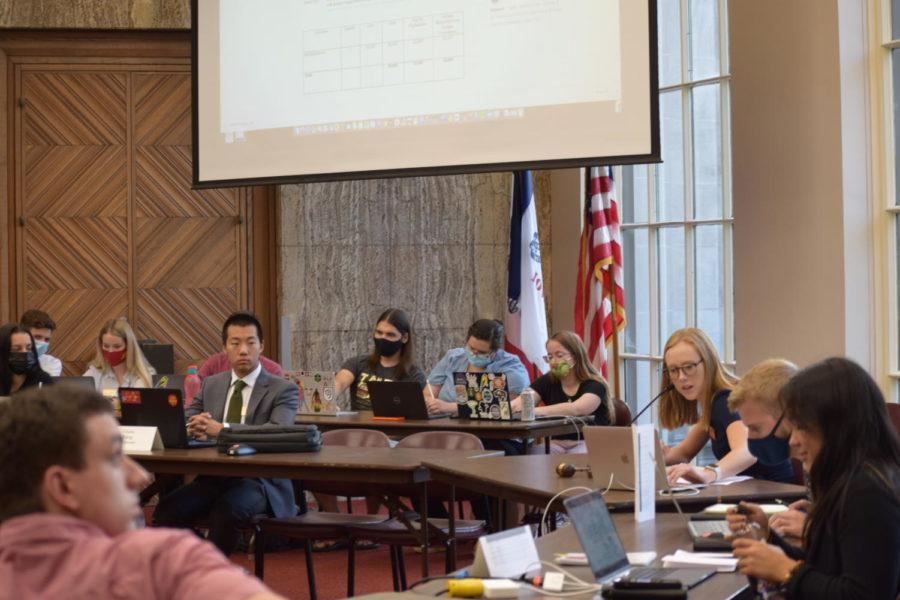Student Government adopts diversity liaison for finance committee
The Student Government Senate addressed funding for recreational activities and campus recycling during their Sep. 1 weekly meeting.
September 1, 2021
The Iowa State University Student Government officially passed a bylaw containing a new position for the finance committee.
The position seeks to facilitate a relationship between the finance committee and student organizations classified as culture or identity based. The bylaw was recommended by the ad-HOC Diversity, Equity and Inclusion (DEI) Committee.
The ad-HOC Diversity, Equity and Inclusion Committee established this position to serve as a liaison between the finance committee and different campus organizations which are identity/culture-based. This will help create greater opportunities for those communities on funding-related issues.
While the executive cabinet and the senate shared debate on amending the wording of the bylaw, the motion passed unanimously. Majority of the senators saw the benefit in leaving the wording more vague so that modifications could easily be made later.
The finance outreach and reduction of disparity director (FORDD) will be nominated by the finance director by the third week of the second session and then consented by the director of student diversity.
Mason Zastrow, senior in political science and finance director, discussed the importance of not creating too much of a burden for the candidate.
“My vision for this role is someone who specifically reaches out to multicultural organizations,” Zastrow said. “Probably, I would think most of the semester they would reach out to us when they had something in mind, but it is a heavy burden to expect regular conversation.”
The meeting began with a presentation on the solar-powered recycling compactors that were recently installed around campus. The presentation was led by Jennifer Seth, a senior majoring in Environmental Science. She discussed what had been happening since the bill was passed last year.
Based on a survey, six new solar-power compactors were installed in different locations around campus.
The project has hit the ground running as compactors can be located near Jack Trice Stadium, Parks Library, Beyer Hall and more. However, there have been issues with contaminating the compactors. When the products are not completely emptied it has begun to cause soiling to the recycling process.
The response to this issue is a pilot project, with more informative signage for students to better comprehend. The recycling will be tracked and monitored to see if the new signage is effective.
The Senate also voted to grant the Crew Club $2,000 for the boats from the Special Projects account to the Rec Services. This split the cost in half as the Club is replacing two damaged vessels.
Disbanding of the student advocates program was also passed. Chief of Staff, senior Jacob Ludwig explained that the program was a good idea, but that it just could not coincide with the University’s policies in order to be effective.
“This is something we picked up from other Universities,” Ludwig said. “There is a fine line to walk in terms of whether or not you end up giving legal advice, which puts both the program and the University at risk. After trying for a whole year, we thought scrapping it might make more sense.”

















